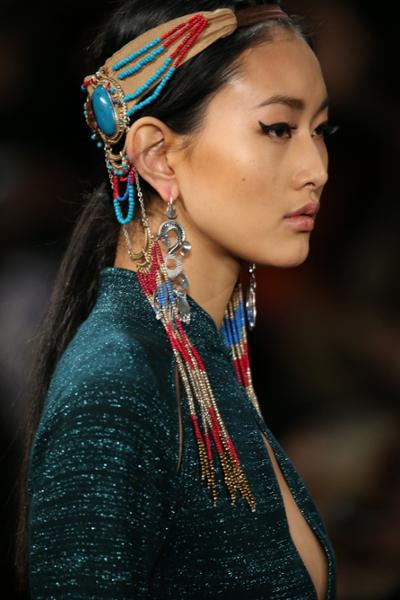
Women's condition in the Mongolian society
Subordination of women in the traditional society
Several occidental eminent specialists are in agreement that Mongolian women have traditionally had higher social positions, and a bigger autonomy, than women from Islamic societies of Central Asia, China, or Korea. Women used to deal with breeding and milking sheep and to take care for home (duties, migrations) when the husband was not here, for example during the national service.
Women were not shy, but they remained subordinated to men and their role remained limited to the domestic sphere. Traditionally, women used to take care of sheep while men dealt with horses. Mongolians used to subordinate women and, at the same time, to accept them to take part in tasks generally devoted to men. Women usually replace men when they're not here for activities like milking horses, or even riding for horse races. And women have always taken part in archery competitions, one of the three “virile sports” (the two others are horse race and wrestle).
Mongolians are more interested in fertility than in virginity, they don't share the essential worry of “purity” that exists in a great part of Asia.
When the revolution started in 1921, significant efforts were made to make women take part in public life and to use their labour in industry. The State also made steady efforts to promote the growth of population, which also contributed to highlight the women's capacity of reproduction. Bring many children into the world was considered as a civic duty. The State did not mention the contradictions between these two roles: producing to help the economy, and reproducing to make the population grow. But there were tensions and the frequent births, the maternity leaves, watching youngest children, probably affected the women's works and their professional involvement.
Women's Education and Employment in Mongolia
Nowadays, Mongolian women are present at all the levels of education and in almost all the jobs. In 1985, they represented 63% of the students of higher education, and 58% of the students of specialised schools. They were 51% of the workers, that is to say a growth of 46% since the census of 1979.
In 1979, women were 65% among doctors, 63% among workers in education, art, and culture jobs, 67% among teachers in general education, and 33% among teachers in high schools. They were 47% among farmers and 46% among employees in industries.
The high number of women in higher education shows that women prevail in medicine, nursing cares, teaching, and pediatry. This responds to the Soviet model, in which most doctors were women and doctors' social and economic position was behind those of USA or West Europe.
The highest scientists, engineers, members of administration or military officers have been formed in Soviet Union. In 1989, there wasn't any statistics about the percent of women among this elite. Nevertheless, Mongolian reports about women's work show that some women worked as airline pilot, judge, or sculptor, and that women prevailed in the less paid jobs in food-processing industry, textile, and restauration sectors.
Mongolian women benefitted from legal equality, but those who worked also had to suffer the “double day” once arrived at home. This problem was recognised and the Academy of Science of Mongolia led a study that showed that the biggest source of tension on women living in city was the excessive number of hours spent in transit between place of work, home, and shops. There were too little roads and buses, alimentary shops were rare, opened at non appropriate hours, and far from the residential areas.
The solutions proposed included the extension of the bus grid réseau, the opening of local shops (shops, restaurants, public launderies, sewers), and expansion of crèches, kindergartens, and development of homework time in schools. Issues of sur-representation of women in less-paid jobs, and their representation among professional education, are not taken on board.
